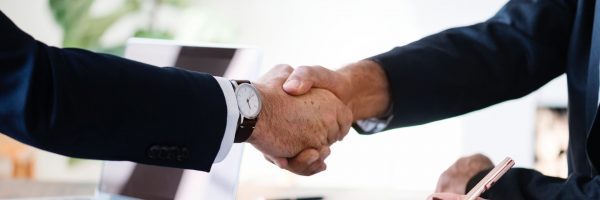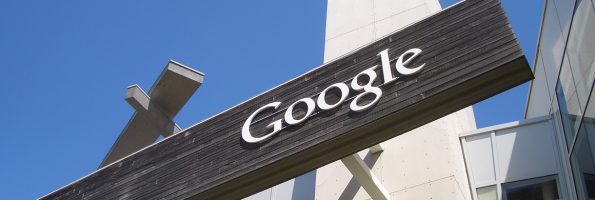Turning Ocean Garbage Into Helpful Prosthetics, and More – Chicago News

Let’s explore some of the most interesting stories that have emerged from Chicago business schools this week.
How “Speed Factories” Help Companies Adapt to Capricious Consumers – Kellogg Insight
In a new study co-authored by Northwestern Kellogg Professor of Managerial Economics and Operations Jan Van Mieghem, Vlerick Business School’s Robert Boute, and Cardiff Business School’s Stephen Disney, the trio survey the return on investment for “speed factories” or local-market facilities “designed to quickly pump out products with shorter life cycles and less predictable demand.”
In the e-commerce age, speed factories are in high demand for manufacturers of realms of sneakers and sports apparel where they “offer fast turnaround to meet demand [for] custom-made products for very small local markets.”
Van Mieghem writes, “Amazon and fast-fashion trends mean that companies have had to increase their speed from product design to delivering that product to customers. If things must happen in days or weeks rather than months, you can’t be doing that from somewhere in Asia.”
The catch is that production costs are often extremely high. However, the trio found that speed factories are “worthwhile, despite their cost, and are best used as part of a portfolio of on and offshore production.”
Van Mieghem adds, “It’s about maintaining the flexibility to bring certain products in and move others out of a speed factory as needed.”
You can read more about the trio’s research here.
Anacortes Couple Turns Ocean Plastics into Prosthetics – K5 News
Gies College of Business Online MBA (iMBA) student and Anacortes, Washington resident Chris Moriarty and his wife Laura co-created the nonprofit Million Waves Project, which “takes littered plastics from the beaches for use in the creation of prosthetics.”
According to a recent profile on Seattle’s K5 News, “It takes just 15 plastic bottles, $45, and two-and-a-half days to make one hand. The couple uses open source software, a company that processes the plastic into filament and a 3-D printer.
In the K5 profile, Chris said, “We thought, wouldn’t it make a lot of sense to take something deplorable in one sense and something heartbreaking in another, put them together and see what we could do.”
Laura adds, “It is daunting. Life is daunting. But like we tell our kids, that doesn’t mean you don’t move forward and try.”
Taking Stock of Market Uncertainty – Quinlan School of Business Stories
The Loyola University Quinlan School of Business blog recently profiled Assistant professor Hae mi Choi, Ph.D. about her research on how macroeconomics and market uncertainty influence financial analysts’ incentives over time.
Professor Choi explained that “financial analysts’ incentives and their forecasting performances are affected by market uncertainty, [which is] when investors have difficulty assessing the current and future market conditions because there is a lot of volatility within the market.”
Choi explains the value of her research to Quinlan students:
“If you want to be a good investor, you need to not only understand what’s going on within a firm, but also the macroeconomic conditions and the stock market conditions in general. Understanding how other investors in the stock market process information and how financial markets function is fundamental, as it impacts the wealth of us all.”
You can read the full interview here.
First Impressions: No Need to Panic! – Chicago News

Let’s explore some of the more interesting stories that have emerged from Chicago business schools this week.
The Personal Statement: No Need to Panic! – Inside Kellstadt
First impressions are stressful across the board, which can make the impression you attach to your business school application all the more nerve-wracking. Current DePaul Kellstadt MBA student Kristen Hall took to the official Kellstadt blog to offer some insights into crafting the perfect personal statement.
In “The Personal Statement: No Need to Panic!” she writes, “My advice to prospective students writing their personal statements would be to share what inspired you to apply to Kellstadt. Each applicant has a different story and connection to the program and sharing your own “Aha!” moment is a way to set yourself apart from other applications.”
You can read Hall’s entire piece here.
How a Genetically Modified Soybean Helped Modernize an Economy – Kellogg Insight
Northwestern University Kellogg School of Management Associate Professor of Finance Jacopo Ponticelli recently co-authored new research that illuminates how “countries develop from agrarian economies into more industrialized ones” by examining the impact of Monsanto’s genetically modified Roundup Ready soybean seed (a.k.a. the Maradona soy) on Brazilian agriculture in the early 2000s.
The research, which was co-authored by University of Zurich economist Bruno Caprettini and Paula Bustos of Spain’s Center for Monetary and Financial Studies, found that “the seed freed up farm laborers to find other jobs, allowing Brazil’s industrial sector to grow, [and] helped farmers put more money in the bank, which led to urban centers getting access to cheaper credit, allowing banks to finance more manufacturing and services firms.”
Ponticelli suggests that Brazil’s example illustrates how “bumps in agricultural productivity can ripple through an entire economy, not only bolstering the manufacturing sector, but exporting fresh capital to the urban centers where new industries tend to grow.”
You can find the full article here.
Mendoza Finance Prof Wins Research Award for Linking Electricity Usage with Stock Returns – Mendoza Ideas & News
Notre Dame University Mendoza College of Business Professor of Finance Zhi Da received the Journal of Financial and Quantitative Analysis’ 2017 William F.Sharpe Award for Scholarship in Financial Research this past May in recognition of his innovative research, which finds that the “growth rate of industrial electricity usage predicts future stock returns for up to one year.”
According to Professor Da’s paper, “industrial electricity usage tracks the output of the most cyclical sectors. So high rate of growth for industrial electricity usage today—indicating an increase in production due to a company’s expectation of increased sales — predicts low stock returns in the future, consistent with a principle called the countercyclical risk premium, [which] states that the market premium tends to run counter to the business cycle.
According to the article, “The Sharpe Award is intended to foster excellence in financial research. Recipients receive a $5,000 prize for the best article published each year in the JFQA.”
You can find more about the reward and Da’s work here.
Finding A Real Estate Career with a Chicago MBA

The number of MBAs who pursue a real estate career may not be as large as those in finance or consulting, but even still, some of the most prestigious business schools in the Chicago metro offer MBA programs that specialize in the field. Continue reading…
How To Get a Job with Google

As one of the most recognizable and powerful tech companies in world, Google has always prioritized bringing in fresh, new talent and hiring the best and brightest MBAs to help lead the next era of innovation at the company. Continue reading…
U. Chicago and Northwestern Deadlines, and More – Chicago News

Let’s explore some of the most interesting stories that have emerged from Chicago business schools this week.
University of Chicago and Northwestern University Reveal 2018-19 MBA Deadlines – MetroMBA
Both of Chicago’s top-tier business schools—Chicago Booth and Northwestern Kellogg—have announced deadlines for the upcoming MBA application season, starting this fall and extending into April of 2019.

Northwestern Kellogg MBA deadlines for 2018-19 begin Sep. 19, 2018 / Photo via northwestern.edu
How Superstition Changes the Way We Make Decisions – Kellogg Insight
Northwestern University Kellogg School of Management professors of marketing Ping Dong and Aparna Labroo recently published new research that explored the impact of superstitious actions on everyday decisions in an edition of Kellogg Insight.
According to the article, they were specifically interested in understanding how they “changed the way we calculate our odds of success or failure when deciding whether to do something risky.”
Labroo uses their study as an opportunity to suck the metaphysical life out of superstitious actions: “We can think about all kinds of good things happening and all kinds of bad things happening, but thinking about the probability and trying to compute expected value is less natural. It takes a little more effort.”
You can check out the full article here.
Could Walk-In Clinics Ease the Opioid Crisis? – Booth Chicago News
New York physician and psychiatrist Dr. Tamir Aldad was frustrated by the “boomerang” effect he experienced with the opioid addicts he treated for “substance use disorder, depression, bipolar disorder, post-traumatic stress disorder, or potential risk of self-harm,” who returned to the “ER in a couple of weeks with the same or worse problem than they came in for in the first place.”
After Dr. Aldad enrolled in Chicago Booth’s Executive MBA program, he launched the Mindful Urgent Care startup, a “walk-in psychiatric clinic designed to … increase mental health access and speed quality and affordable treatment to a population of patients with unmet needs.” Dr. Aldad and his teammates placed first in Booth’s Global New Venture Challenge this past April.
Aldad writes, “In value-based care, patient outcomes really matter. What we are seeing now is that patients in mental health are costing more and more. If a patient winds up in a hospital because they couldn’t get in to their doctor’s office or have a medication refilled, the healthcare costs escalate. We have an opioid crisis, and we have to proactively work to find ways to prevent mental illness from getting worse.”
Read more about Aldad’s experience in the Booth EMBA program here.
Quinlan Alum Leads Through Service – Quinlan School of Business Blog
The Quinlan School of Business at Chicago’s Loyola University recently interviewed alum Illiana Alvarenga BBA ’14, BA ’14 about Quinlan prepared her for a multi-faceted career path that includes a healthy dose of service and service leadership as part of her position as the Chicago chair of UNICEF’s Next Generation Initiative.
“It was at Loyola that I strengthened my love for giving back. For me, Quinlan strengthened a foundation of being strategic, but also encouraged us to always keep in mind what’s good for our communities,” Alvarenga writes.
This year Alvarenga traveled to South Africa with UNICEF to figure out how they “can leverage technology to help with programs to stop illness through increased handwashing, help girls excel in STEM-based careers, and more.”
Alvarenga also works as a competitive intelligence senior associate at JP Morgan Chase, where she focuses on “supporting the business in understanding emerging consumer behavior trends, the changing payments landscape, digital and mobile initiatives in financial services, and new developments in financial technology.”
You can read the full Quinlan interview here.
What are the Best MBA Programs by Specialty?

Each year, U.S. News and World Report looks at the top business schools around the country to decide which offer the best MBA programs. The goal is to help MBA candidates most effectively choose the best MBA degree to help them achieve their goals based on their interests and strengths. The problem is that there are hundreds of programs and it can be difficult to weed out all the noise to get to the information that you want most.
That’s why the U.S. News and World Report decided to break down all of their findings into a more easily consumable ranking. They outlined the top MBA programs by discipline to help you quickly and easily find the school you’re looking for. Each of the schools on the list was chosen based on alumni interviews, schools statistics, research data, and more.
We’ve broken down the results below along with crucial information about each school listed and where you can learn more information.
